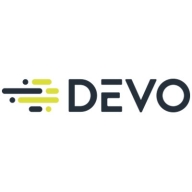

Devo and ClearSkies SaaS NG SIEM are two leading products in the Next-Generation SIEM market. ClearSkies SaaS NG SIEM is perceived as a more feature-rich and superior product overall based on user reviews.
Features: Devo is noted for its real-time data analytics, threat intelligence, and comprehensive monitoring. ClearSkies SaaS NG SIEM offers advanced threat detection, behavioral analytics, and seamless integration with various platforms. Users find ClearSkies features more valuable and sophisticated compared to Devo.
Room for Improvement: Users suggest that Devo could improve its scalability and provide more in-depth customization options. ClearSkies SaaS NG SIEM could benefit from enhanced reporting capabilities and a more intuitive setup process. ClearSkies is seen as needing fewer adjustments compared to Devo.
Ease of Deployment and Customer Service: Devo is praised for its straightforward deployment process and responsive customer support. ClearSkies SaaS NG SIEM receives higher marks for offering a more comprehensive support system and quicker issue resolution. ClearSkies stands out for exceptional customer service.
Pricing and ROI: Users find Devo to be reasonably priced with a good return on investment, though some believe additional features could be provided. ClearSkies SaaS NG SIEM, while more expensive, is deemed worth the investment due to its extensive capabilities and higher user satisfaction in terms of ROI.

ClearSkies™ Software-as-a-Service is a fast, robust, scalable and flexible Next Generation SIEM solution. It provides real-time correlation of log data combined with evidence-based knowledge of emerging threats and vulnerabilities, thus allowing the early detection of and response to targeted attacks and data breaches.
Devo is the only cloud-native logging and security analytics platform that releases the full potential of all your data to empower bold, confident action when it matters most. Only the Devo platform delivers the powerful combination of real-time visibility, high-performance analytics, scalability, multitenancy, and low TCO crucial for monitoring and securing business operations as enterprises accelerate their shift to the cloud.
We monitor all Security Information and Event Management (SIEM) reviews to prevent fraudulent reviews and keep review quality high. We do not post reviews by company employees or direct competitors. We validate each review for authenticity via cross-reference with LinkedIn, and personal follow-up with the reviewer when necessary.